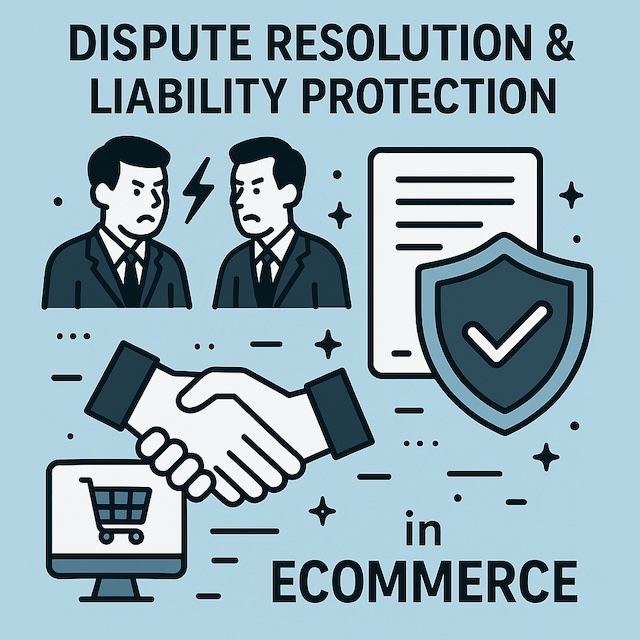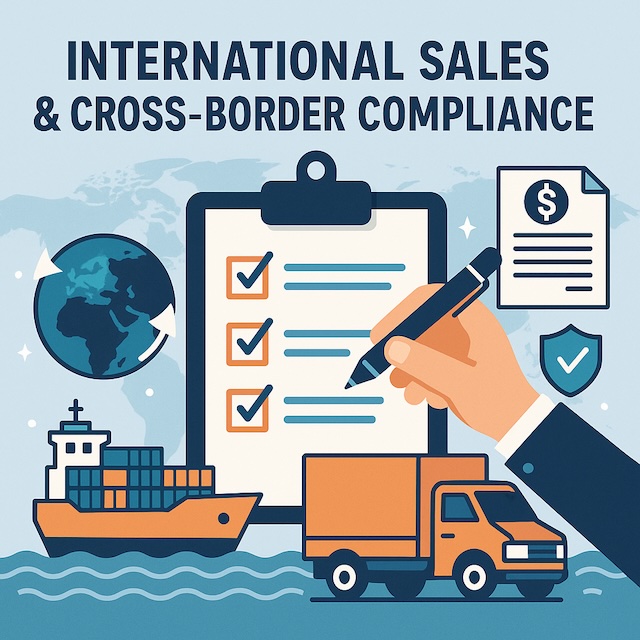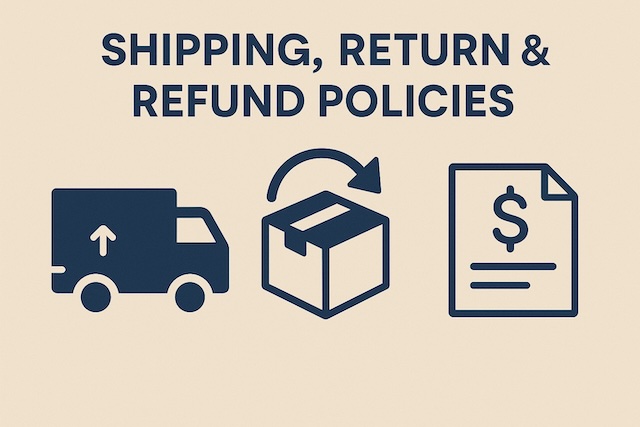Common eCommerce Disputes
Running an online store inevitably means handling conflicts. Common disputes include:
- Chargebacks (customers contesting credit card charges).
- Defective products or unmet expectations.
- Shipping delays and refund disagreements.
- IP infringement claims from competitors.
Using Contracts to Manage Disputes
- Include a dispute resolution clause in your Terms of Service.
- Many businesses require arbitration instead of lawsuits.
- Choice-of-law provisions can designate which state’s laws apply.
Courts usually enforce arbitration clauses if they’re clearly stated and agreed to via clickwrap.
Insurance for Online Stores
Legal disputes can be costly. Insurance helps:
- General Liability Insurance – Covers accidents or damages from products.
- Cyber Liability Insurance – Covers data breaches and hacking incidents.
- Product Liability Insurance – Protects against defective product claims.
Steps to Reduce Risk
- Keep detailed records of transactions and customer communications.
- Use reliable suppliers with contracts.
- Honor refund and shipping policies consistently.
- Invest in strong cybersecurity protections.
Key Takeaways
- Disputes are inevitable — but proper contracts and insurance limit exposure.
- Arbitration clauses can save time and money compared to lawsuits.
- Proactive policies (clear refunds, documented orders) reduce disputes before they happen.
Action Step: Review your Terms of Service to see if you have a dispute resolution clause. If not, consider adding arbitration and governing-law provisions.





